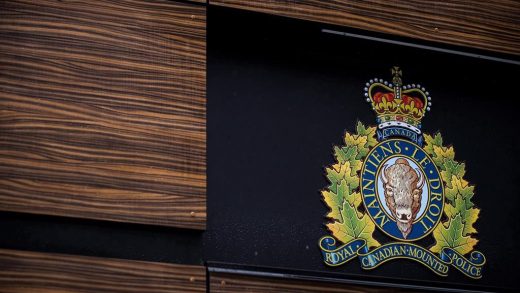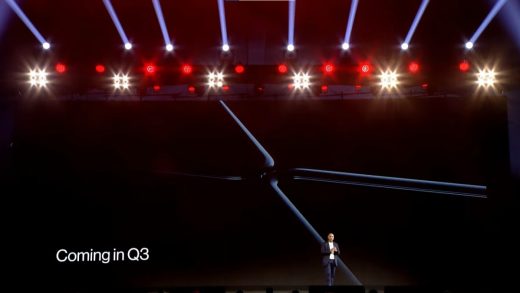:format(webp)/https://www.thestar.com/content/dam/thestar/entertainment/music/2023/01/25/what-do-you-get-when-you-combine-contemporary-music-bach-and-theatre-alisa-weilersteins-fragments/alisa_weilerstein_img_2467_graham_northrup.jpg)
Inspiration can spring forth at the darkest moments. It happened to world-renowned American cellist Alisa Weilerstein late in 2020 when her globe-trotting career ground to a halt because of the pandemic.
“The reason I do what I do and the reason I love what I do is because it’s about communication and connection,” said Weilerstein, a 2011 MacArthur “Genius ” fellowship recipient.
Weilerstein makes her latest appearance at Toronto’s Koerner Hall on Saturday with the first two instalments of “Fragments,” her epically groundbreaking project to interweave commissioned contemporary compositions with beloved music by J.S. Bach. The two currently completed works will have their world premieres here as part of 21C, the Royal Conservatory of Music’s “festival of newly minted music by the world’s foremost stars of independent musical thinking and innovation.”
After Toronto, “Fragments” will tour to California before returning east at the beginning of April to New York’s Carnegie Hall, the hallowed venue where Weilerstein first played as a teenager in 1997.
When the initial pandemic shutdowns began in the spring of 2020 there was understandable optimism that the hiatus would be brief. Weilerstein was quick to fill the gap by connecting with music lovers virtually.
Although she is much noted as a champion of new music, Weilerstein is also a widely admired interpreter of Bach’s six suites for unaccompanied cello, which she has played to rapturous acclaim on major stages around the world, from Tokyo and Guangzhou to London and Paris.
In April 2020, Dutch label Pentatone released her 2019, two-disc recording of all six suites and Weilerstein decided to use her social media platforms for a home-based project she called “#36DaysOfBach.” She livestreamed one of each suite’s six movements over 36 consecutive days.
So far so good; except it soon became apparent that the curse of COVID-19 was not soon to pass.
“I put my cello away for a while because I had so many projects cancelled or postponed, and I just was tired of hearing bad news,” Weilerstein recalled.
At the time, she was in Southern California where the previous July her husband, the Venezuelan conductor Rafael Payare, had begun his term as music director of the San Diego Symphony. He has since also taken up the post of music director of the Montreal Symphony Orchestra.
“I decided I just needed to take some walks on the beach and along the cliffs to clear my head,” Weilerstein said. “I came back and sort of forced myself to open the cello case and just started playing scales, which I always find very meditative and helpful.”
She began thinking what it might be like when the easing of pandemic restrictions allowed performers and audiences to reconnect in person. At the same time, Weilerstein reflected on the way many of the virtual musical performances she was watching used theatrical elements, especially sensitive lighting, to enrich the visual experience.
“How can we rethink the concert experience and just feel music in a more visceral way?” Weilerstein remembers asking herself. “And then I had this flash of inspiration and started scribbling ideas down.”
Why not bring her love of Bach and of contemporary music together in a totally original way within an immersive theatrical setting?
As Weilerstein’s ideas evolved she settled on a plan to take each of the six Bach cello suites as the foundation of a roughly hour-long program that would reorder, juxtapose and intermingle their movements with fragments of commissioned works by the broadest, most diverse range of composers Weilerstein could find.
“I gave each one the same prompt. I asked them to write no more than 10 minutes of music in two or three fragments that they would give me permission to divide up between other pieces of new music or between movements of Bach. Each program is its own original creation. It’s taking all these works of the living composers and of Bach, and arranging them in a way that is an entirely original arc.”
Weilerstein is justly proud of the fact that her diverse group of composers includes nine different nationalities, is gender-balanced, and includes both well-established and emerging artists ranging in age from 26 to 84. The result is an invigorating range of styles.
“You have very modernist music and also very tonal music. There’s some neo-Baroque stuff. Other pieces sound even romantic. When it came time to put them all in order I was nervous because I thought this has got to be exactly right. In fact it just flowed out of me.”
Some of the chosen composers Weilerstein knew already. Others she set out to find.
“I went down the Spotify and YouTube rabbit hole as well as relying on word-of-mouth and recommendations from composers I already know.”
Among those Weilerstein spoke with early on was Mervon Mehta, the conservatory’s executive director for performing arts. He was naturally eager to see at least one of Canada’s talented young composers included among the 27 Weilerstein planned to commission. Mehta’s wish has been fulfilled, although you won’t know it by looking at the house program because there won’t be one.
The identities and biographies of all the composers involved are available on a dedicated section of Weilerstein’s website — alisaweilerstein.com/fragments — but unless you’re very familiar with their work it’s unlikely you’ll know who wrote what. This is deliberate. Weilerstein wants her audience simply to listen and absorb the overall sensory experience, enhanced by Seth Reiser’s modular sets and lighting, and Carlos J Soto’s costume designs.
“I’m happy to say that ‘Fragments’ doesn’t really fit into any category,” said Weilerstein. “This is solo cello music, but it is a piece of theatre. I really like work that lives in the in-between. My original thesis on this was that I wanted to create a really visceral connected experience for everyone. You don’t need to come at it with any particular knowledge to get everything out of it.”
JOIN THE CONVERSATION


